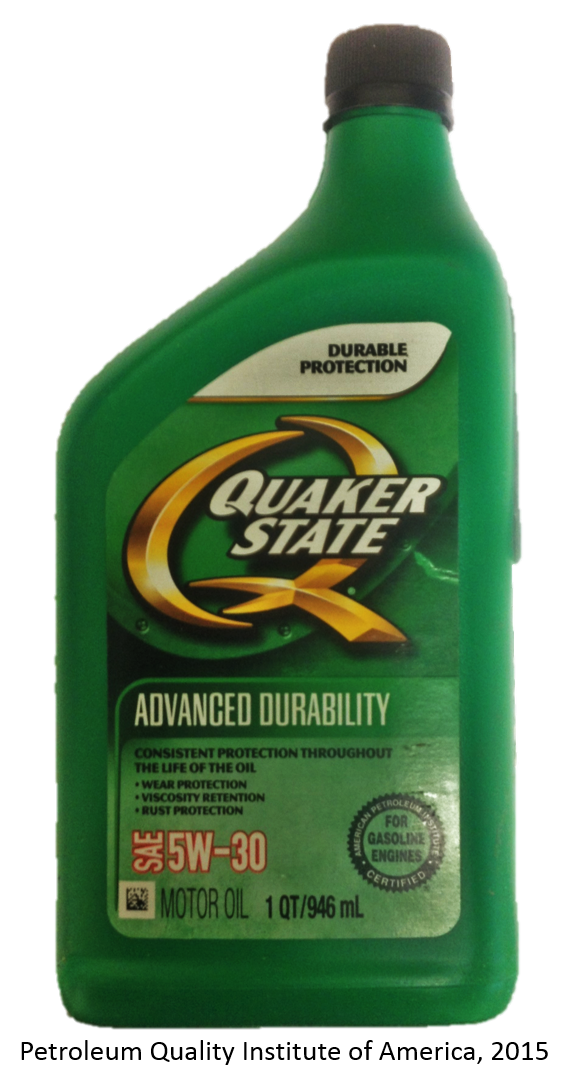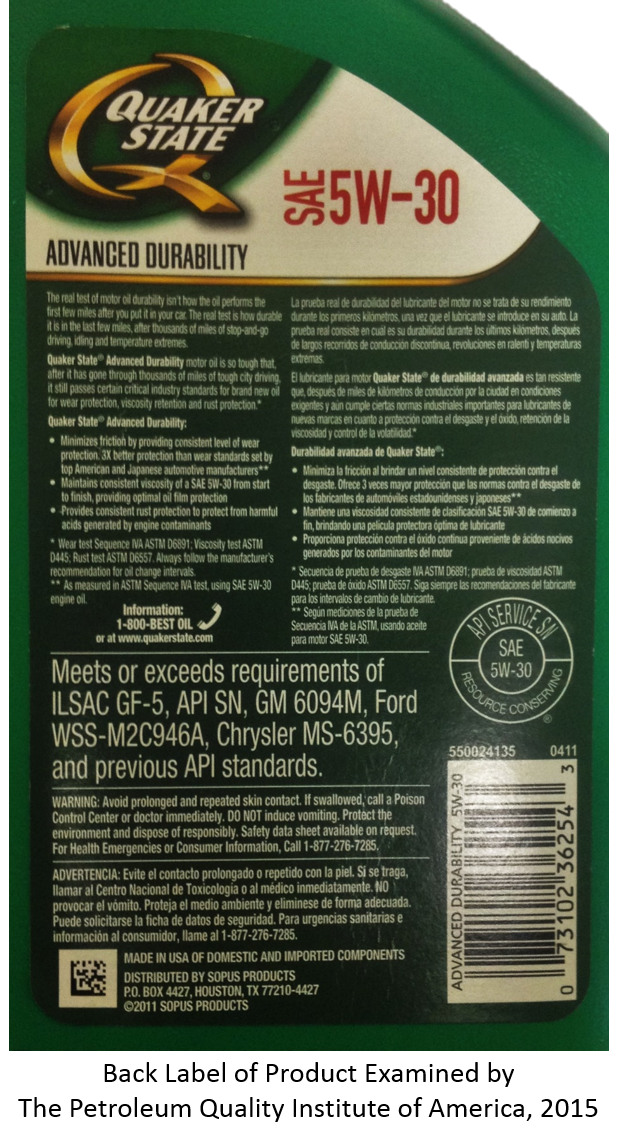

The Data Speak for Itself...

Click above for larger image

Click above for larger image
Corporate Office:
Houston, TX 77210
Website(s):www.quakerstate.com
Shell Oil Company US (SOPUS) is the United States-based subsidiary of Royal Dutch Shell. Royal Dutch Shell is one of the largest major oil companies in the worldSOPUS is a leading producer of oil and natural gas, gasoline, and petrochemical products in the US.
The company is also a leading manufacturer and marketer of motor oils and other automotive and industrial lubricants and products. In addition to Shell branded lubricants, Pennzoil-Quaker State Company, doing business as SOPUS Products, Inc., produces motor oils and other automotive products under the Pennzoil and Quaker State brand names.
The Petroleum Quality Institute of America (PQIA) is an independent resource for information and insights on the quality of lubricants in the marketplace. Our mission is to serve the consumer of lubricants by randomly sampling and independently testing lubricants taken from the field. Test results are posted along with the brand names on the PQIA website. This webpage provides an analysis on the brand detailed below.
The following are the test results for the sample examined.
Distributed By Sopus Products
Purchased at: Bourbannais, IL
Date of purchase: 1/5/2015
Website(s): www.quakerstate.com
The results of the tests conducted on this sample meet the SAE J300 specifications for the SAE Viscosity Grade listed on the product label, and are consistent with the listed API Service Categories.
 |
Physical Properties |  |
| Elemental Analysis |  |
|
| Labeling |  |
Note: Although laboratory tests alone cannot be used to establish if engine oil meets an API Service Category, they can be used to determine if it doesn't.
| PHYSICAL TESTS (click for test details) - a | Standard | Quaker State |
| TBN, mg KOH/g (ASTM D2896) | 8.2 | |
| Viscosity @ 100ºC, cSt (ASTM D445) | 9.3 to <12.5 | 10.8 |
| Viscosity @40ºC, cSt (ASTM D445) | 62.0 | |
| Viscosity Index (ASTM D2270) | 162.0 | |
| Viscosity @-30ºC mPa s (cP) (ASTM D5293) | 6,600 Max | 5284 |
| Volatility, mass % loss, 1 hr, @ 250ºC (ASTM D5800) | 15 Max -c | 14.7 |
| ELEMENTAL ANALYSIS (click for test details) - a, b | ||
| Additives | ||
| Calcium | 2216 | |
| Magnesium | 11 | |
| Phosphorus, ppm | 600 to 800 | 788 |
| Zinc, ppm | 846 | |
| Molybdenum, ppm | 124 | |
| Barium, ppm | <1 | |
| Boron, ppm | 236 | |
| Silicon, ppm | 5 | |
| Potassium, ppm | <5 | |
| Manganese, ppm | <1 | |
| Titanium, ppm | <1 | |
| Copper, ppm | <1 | |
| Sodium, ppm | <5 | |
| Vanadium, ppm | <1 | |
| Contaminants | ||
| Silver, ppm | <1 | |
| Aluminum, ppm | 1 | |
| Chromium, ppm | <1 | |
| Iron, ppm | <1 | |
| Nickel, ppm | <1 | |
| Lead, ppm | <1 | |
| Antimony, ppm | <1 | |
| Tin, ppm | <1 | |
|
||

